 [div class=attrib]By Robert Pinsky for Slate:[end-div]
[div class=attrib]By Robert Pinsky for Slate:[end-div]
The quality of wit, like the Hindu god Shiva, both creates and destroys—sometimes, both at once: The flash of understanding negates a trite or complacent way of thinking, and that stroke of obliteration at the same time creates a new form of insight and a laugh of recognition.
Also like Shiva, wit dances. Leaping gracefully, balancing speed and poise, it can re-embody and refresh old material. Negation itself, for example—verbal play with words like nothing and nobody: In one of the oldest jokes in literature, when the menacing Polyphemus asks Odysseus for his name, Odysseus tricks the monster by giving his name as the Greek equivalent of Nobody.
Another, immensely moving version of that Homeric joke (it may have been old even when Homer used it) is central to the best-known song of the great American comic Bert Williams (1874-1922). You can hear Williams’ funny, heart-rending, subtle rendition of the song (music by Williams, lyrics by Alex Rogers) at the University of California’s Cylinder Preservation and Digitization site.
The lyricist Rogers, I suspect, was aided by Williams’ improvisations as well as his virtuoso delivery. The song’s language is sharp and plain. The plainness, an almost throw-away surface, allows Williams to weave the refrain-word “Nobody” into an intricate fabric of jaunty pathos, savage lament, sly endurance—all in three syllables, with the dialect bent and stretched and released:
When life seems full of clouds and rain,
And I am full of nothing and pain,
Who soothes my thumpin’, bumpin’ brain?
Nobody.
When winter comes with snow and sleet,
And me with hunger, and cold feet—
Who says, “Here’s twenty-five cents
Go ahead and get yourself somethin’ to eat”?
Nobody.
I ain’t never done nothin’ to Nobody.
I ain’t never got nothin’ from Nobody, no time.
And, until I get somethin’ from somebody sometime,
I’ll never do nothin’ for Nobody, no time.
In his poem “Upon Nothing,” John Wilmot (1647-80), also known as the earl of Rochester, deploys wit as a flashing blade of skepticism, slashing away not only at a variety of human behaviors and beliefs, not only at false authorities and hollow reverences, not only at language, but at knowledge—at thought itself:
“Upon Nothing”
………………………1
Nothing, thou elder brother ev’n to Shade
Thou hadst a being ere the world was made,
And, well fixed, art alone of ending not afraid.
………………………2
Ere Time and Place were, Time and Place were not,
When primitive Nothing Something straight begot,
Then all proceeded from the great united What.
………………………3
Something, the general attribute of all,
Severed from thee, its sole original,
Into thy boundless self must undistinguished fall.
………………………4
Yet Something did thy mighty power command,
And from thy fruitful emptiness’s hand
Snatched men, beasts, birds, fire, water, air, and land.
………………………5
Matter, the wicked’st offspring of thy race,
By Form assisted, flew from thy embrace
And rebel Light obscured thy reverend dusky face.
………………………6
With Form and Matter, Time and Place did join,
Body, thy foe, with these did leagues combine
To spoil thy peaceful realm and ruin all thy line.
………………………7
But turncoat Time assists the foe in vain,
And bribed by thee destroys their short-lived reign,
And to thy hungry womb drives back thy slaves again.
………………………8
Though mysteries are barred from laic eyes,
And the divine alone with warrant pries
Into thy bosom, where thy truth in private lies;
………………………9
Yet this of thee the wise may truly say:
Thou from the virtuous nothing doest delay,
And to be part of thee the wicked wisely pray.
………………………10
Great Negative, how vainly would the wise
Enquire, define, distinguish, teach, devise,
Didst thou not stand to point their blind philosophies.
………………………11
Is or Is Not, the two great ends of Fate,
And true or false, the subject of debate,
That perfect or destroy the vast designs of state;
………………………12
When they have racked the politician’s breast,
Within thy bosom most securely rest,
And when reduced to thee are least unsafe, and best.
………………………13
But, Nothing, why does Something still permit
That sacred monarchs should at council sit
With persons highly thought, at best, for nothing fit;
………………………14
Whilst weighty something modestly abstains
From princes’ coffers, and from Statesmen’s brains,
And nothing there, like stately Nothing reigns?
………………………15
Nothing, who dwell’st with fools in grave disguise,
For whom they reverend shapes and forms devise,
Lawn-sleeves, and furs, and gowns, when they like thee look wise.
………………………16
French truth, Dutch prowess, British policy,
Hibernian learning, Scotch civility,
Spaniards’ dispatch, Danes’ wit, are mainly seen in thee.
………………………17
The great man’s gratitude to his best friend,
Kings’ promises, whores’ vows, towards thee they bend,
Flow swiftly into thee, and in thee ever end.
[div class=attrib]More from theSource here.[end-div]

 Ushering in our week of articles focused mostly on death and loss is a classic piece by Welshman, Dylan Thomas. Although Thomas’ literary legacy is colored by his legendary drinking and philandering, many critics now seem to agree that his poetry belongs in the same class as that of W.H. Auden.
Ushering in our week of articles focused mostly on death and loss is a classic piece by Welshman, Dylan Thomas. Although Thomas’ literary legacy is colored by his legendary drinking and philandering, many critics now seem to agree that his poetry belongs in the same class as that of W.H. Auden. Tomas Tranströmer is one of Sweden’s leading poets. He studied poetry and psychology at the University of Stockholm. Tranströmer was awarded the 2011 Nobel Prize for Literature “because, through his condensed, translucent images, he gives us fresh access to reality”.
Tomas Tranströmer is one of Sweden’s leading poets. He studied poetry and psychology at the University of Stockholm. Tranströmer was awarded the 2011 Nobel Prize for Literature “because, through his condensed, translucent images, he gives us fresh access to reality”. The Autumnal Equinox finally ushers in some cooler temperatures for the northern hemisphere, and with that we reflect on this most human of seasons courtesy of a poem by Archibald MacLeish.
The Autumnal Equinox finally ushers in some cooler temperatures for the northern hemisphere, and with that we reflect on this most human of seasons courtesy of a poem by Archibald MacLeish.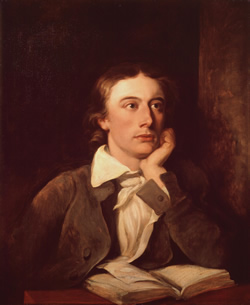
 A poem by Anthony Hecht this week. On Hecht, Poetry Foundation remarks, “[o]ne of the leading voices of his generation, Anthony Hecht’s poetry is known for its masterful use of traditional forms and linguistic control.”
A poem by Anthony Hecht this week. On Hecht, Poetry Foundation remarks, “[o]ne of the leading voices of his generation, Anthony Hecht’s poetry is known for its masterful use of traditional forms and linguistic control.” This week theDiagonal triangulates its sights on the topic of language and communication. So, we introduce an apt poem by Robert Duncan. Of Robert Duncan, Poetry Foundation writes:
This week theDiagonal triangulates its sights on the topic of language and communication. So, we introduce an apt poem by Robert Duncan. Of Robert Duncan, Poetry Foundation writes: Labor Day traditionally signals the end of summer. A poem by Gwendolyn Brooks sets the mood. She was the first black author to win the Pulitzer Prize.
Labor Day traditionally signals the end of summer. A poem by Gwendolyn Brooks sets the mood. She was the first black author to win the Pulitzer Prize. A poem by Billy Collins ushers in another week. Collins served two terms as the U.S. Poet Laureate, from 2001-2003. He is known for poetry imbued with leftfield humor and deep insight.
A poem by Billy Collins ushers in another week. Collins served two terms as the U.S. Poet Laureate, from 2001-2003. He is known for poetry imbued with leftfield humor and deep insight. Ushering in this week’s focus on the brain and the cognitive sciences is an Emily Dickinson poem.
Ushering in this week’s focus on the brain and the cognitive sciences is an Emily Dickinson poem. A poignant, poetic view of our relationships, increasingly mediated and recalled for us through technology. Conor O’Callaghan’s poem ushers in this week’s collection of articles at theDiagonal focused on technology.
A poignant, poetic view of our relationships, increasingly mediated and recalled for us through technology. Conor O’Callaghan’s poem ushers in this week’s collection of articles at theDiagonal focused on technology. Monday’s poem authored by William Meredith, was selected for it is in keeping with our
Monday’s poem authored by William Meredith, was selected for it is in keeping with our 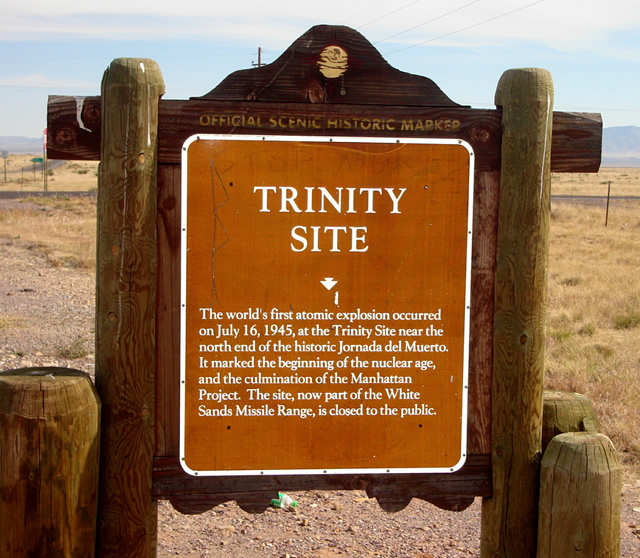
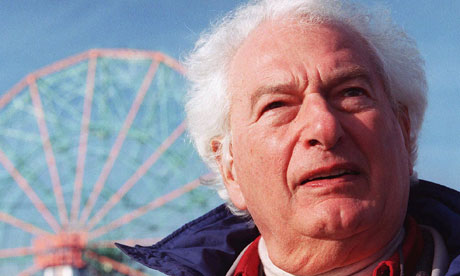 [div class=attrib]From the Guardian:[end-div]
[div class=attrib]From the Guardian:[end-div]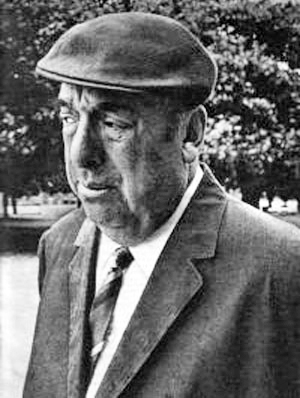
 [div class=attrib]Let America Be America Again, Langston Hughes[end-div]
[div class=attrib]Let America Be America Again, Langston Hughes[end-div] [div class=attrib]By Robert Pinsky for Slate:[end-div]
[div class=attrib]By Robert Pinsky for Slate:[end-div]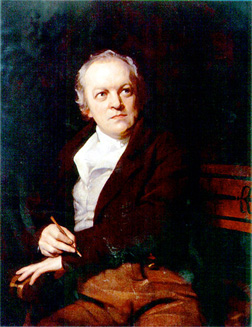 [div class=attrib]By Robert Pinsky for Slate:[end-div]
[div class=attrib]By Robert Pinsky for Slate:[end-div] [div class=attrib]By Robert Pinsky for Slate:[end-div]
[div class=attrib]By Robert Pinsky for Slate:[end-div] [div class=attrib]By Gary Kasparov, From the New York Review of Books:[end-div]
[div class=attrib]By Gary Kasparov, From the New York Review of Books:[end-div]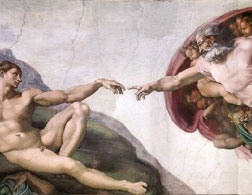 [div class=attrib]By Robert Pinsky for Slate:[end-div]
[div class=attrib]By Robert Pinsky for Slate:[end-div]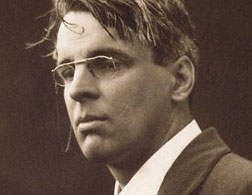 [div class=attrib]By Robert Pinsky for Slate:[end-div]
[div class=attrib]By Robert Pinsky for Slate:[end-div] [div class=attrib]By Andrew Sullivan for the Altantic[end-div]
[div class=attrib]By Andrew Sullivan for the Altantic[end-div] [div class=attrib]From Eurozine:[end-div]
[div class=attrib]From Eurozine:[end-div]